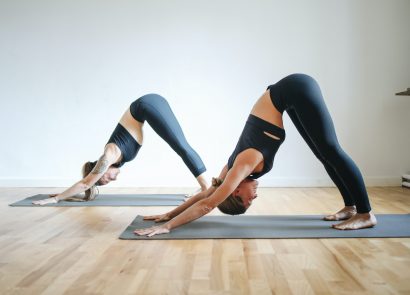With over half of the British population believing that all is well on the inside if everything looks okay on the outside, it’s increasingly important to understand, and safeguard against, the effects that today’s choices have on our future health. So, from your thirties through to your fifties, we’ve got the help of Bupa Health Clinics experts – GPs Dr Luke Powles and Dr Ann Robinson, as well as dermatologist Dr Stephanie Munn to help us stay healthy at any age.
-
- IN YOUR THIRTIES Many women hit those milestones in this deacde – whether this is careers, marriage or kids, but the thirties have some additional health matters to consider. “For women, cervical screening is critical in this age group,” says Dr Luke Powles. From age 25 to 49, women should have a smear test every three years. Early detection of anything unusual can hugely increase the survival rate. One in 20 women have a smear test result that comes back abnormal, and while this doesn’t mean they have cancer, investigating can help reduce the risk.” This is also the decade where wrinkles and early sun damage will start to appear. Many women will start to have children at this age too and pregnancy can sometimes result in stretch marks and skin pigmentation issues, which can be a concern for some.
-
- Dermatologist, Dr Stephanie Munn shares her three top skincare tips for women in their thirties: 1. Use a moisturiser every day (and one with sunscreen between May and October).
2. Wash your face daily with a non-soap cleanser and remove make up and pollutants each night, then moisturise again before you go to sleep.
3. Pregnancy stretch marks can take up to a year to come through after your baby arrives, so ensure you’re moisturising your whole body regularly during, and after, pregnancy.
- Dermatologist, Dr Stephanie Munn shares her three top skincare tips for women in their thirties: 1. Use a moisturiser every day (and one with sunscreen between May and October).
-
- IN YOUR FORTIES Forties is typically the age to enter the menopause, but what else do you need to consider?
“Alzheimer’s disease, which accounts for two thirds of all dementia, actually starts around twenty years before any symptoms appear,” warns Dr Ann Robinson. “It’s important to consider this and be aware earlier in life how certain life choices can increase the chances of dementia. Smoking and diabetes at any age increases our risk, as does high blood pressure, high cholesterol, being inactive and being obese.”
Dr Luke also warns of the risk of heart disease at this age. “While oestrogen protects women from many forms of heart disease, menopause in their late forties and early fifties means that they need to be as vigilant as men in this age group.”
- IN YOUR FORTIES Forties is typically the age to enter the menopause, but what else do you need to consider?
-
- Dr Luke’s top tips for women in their forties: 1. Breast cancer is the biggest cause of death for women in this age bracket, so it is essential that women become breast aware, frequently check themselves and go to their GP if they have any concerns.
2. This is also the time to start protecting joints that will become increasingly prone to injury as we age.
3. Weight management is key at this stage of life, as is keeping active.
- Dr Luke’s top tips for women in their forties: 1. Breast cancer is the biggest cause of death for women in this age bracket, so it is essential that women become breast aware, frequently check themselves and go to their GP if they have any concerns.
-
- IN YOUR FIFTIES For people in their fifties, it is advised to adopt a holistic and vigilant approach to health. “Your skin reflects what is going on inside,” says dermatologist Dr Stephanie Munn. “When you’re exercising regularly, eating and sleeping well and drinking in moderation, your skin will look better and you will feel better.” Whilst skin cancer can occur at any age, the most common age to develop this is in your 50s and 60s.
“If new moles appear or they change shape, have different colours, are bigger than the size of the top of a ball point pen, become itchy, crusty or start bleeding make sure you see your GP or dermatologist,” continues Dr Stephanie.
- IN YOUR FIFTIES For people in their fifties, it is advised to adopt a holistic and vigilant approach to health. “Your skin reflects what is going on inside,” says dermatologist Dr Stephanie Munn. “When you’re exercising regularly, eating and sleeping well and drinking in moderation, your skin will look better and you will feel better.” Whilst skin cancer can occur at any age, the most common age to develop this is in your 50s and 60s.
- Dr Luke shares his top tips for women in their fifties: 1. Act on any niggles straight away. For example, if you have a cough that persists for longer than three weeks, it’s really important to go and seek health advice – particularly if you smoke or used to.
2. It’s also important to protect your bones at this age: weight bearing exercise is a good thing to keep up and try to keep your weight in check. Book in a health assessment, which will consider all aspects of your lifestyle and give practical, personalised advice on keeping bones strong and healthy.
3. Stay social! It’s easy to let regular contact with friends slide as you get older, and family and work pressures mount. However, maintaining these relationships in your fifties means you are safe-guarding your mental health for a time when you may not work as much or at all.




















